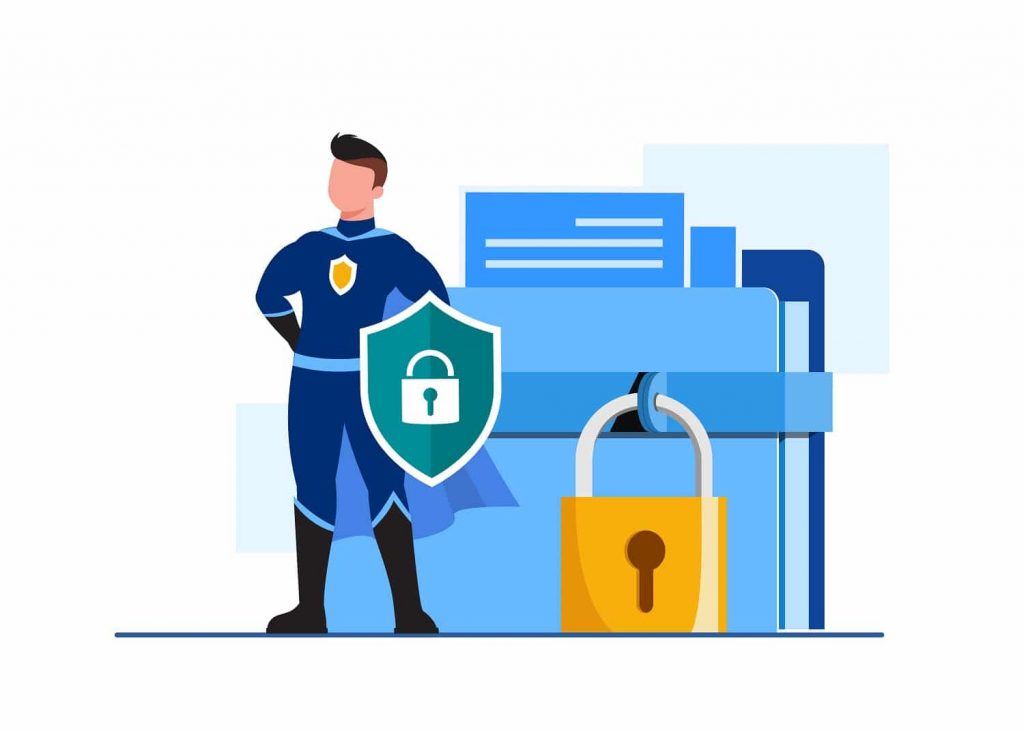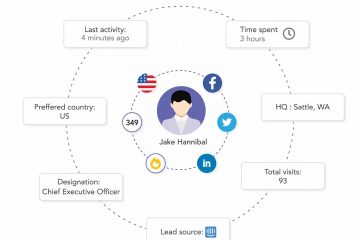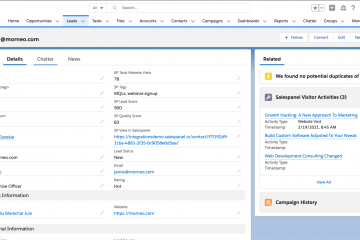Discovering Clients in a Cybersecurity Market

The modern internet and the systems created by information technologies bring a lot of convenience into a fast-paced world. The extent of created benefits ranges from comfort for private web users to efficiency for businesses and companies. Because the web has become a hub that improves both the pleasures and necessities of life, most internet users today cannot imagine life without information technology.
Accelerated checkouts, purchases, entertainment, and the means of communication make the internet an inseparable part of our lives. However, to enjoy its benefits to the fullest, we must educate ourselves on the cybersecurity threats that are rampant on the web. Understanding the strategies used by hackers and criminals helps us test and invent preventive measures that ensure a safer browsing experience for both casual users and established modern businesses.
A necessity for protection creates the space for a cybersecurity market to thrive. However, most marketing campaigns conducted by modern companies involve personalized advertisement and data aggregation to discover potential clients.
In this article, our goal is to help cybersecurity businesses and marketing agencies find ethical ways to discover clients. We will discuss why it is so difficult to find potential customers in the cybersecurity market. Client tracking and identification, data gathering, and brand communication are bad practices for cybersecurity companies that value privacy, data protection, and anonymity too much to see the value in those approaches. We aim to educate readers on other, different approaches for marketers: client personas, audience targeting, PR, and ethical use of proxy servers. For example, you can use a residential proxy or any other location proxy to localize your business in any region in the world to have a better client outreach. Using a residential proxy and ethical approaches described above will help marketing agencies find a moral way to cooperate with cybersecurity companies.
Bad marketing practices for cybersecurity businesses
Client tracking and identification do wonders for retailers and online shops that seek to capture the attention of recurring customers. Registered accounts and social media pages let companies control and improve their relationship with clients and steer their attention towards the favorable aspects of a product or service. Such containment of personal information puts clients on a leash, which offers plenty of benefits for businesses, but infringes the privacy of customers. Some companies push collection to unreasonable limits, disregarding the ethical aspects of cooperation with clients. While it brings extremely effective resources for effective, personalized marketing, and when used right, high levels of customer satisfaction, using the same practices for marketing cybersecurity sends a wrong message because it disregards the problem and injustice the companies seek to fight. Businesses that not only want to assist but also educate about the dangers of data exposure should not use the same tactics to lure customers and captivate their attention. Even the placement of ads that give hints to clients that care about privacy can be strategically placed with third-party cookies to promote security businesses. Cybersecurity companies have to find alternative ways to promote themselves instead of becoming a part of the problem they seek to diminish.
Data gathering en masse is the strategy used by modern businesses, but it is also a strategy that marketers should avoid or severely reduce when working with cybersecurity businesses. Numerous sources can be used to obtain valuable user information suitable for client persuasion and manipulation. Digital marketing is all about creating a strong connection, an invisible string that binds recurring customers to their favorite businesses. Information obtained from social media platforms, online accounts, their posts, and all digital footprints that cover segments of a user’s personal information can be used to create personalized ads. Data gathering does wonders for marketing campaigns, and in some cases, it becomes too effective. If you wonder how that is possible, you probably already experienced it yourself. In the past, traditional media outlets ran prepaid ads created by businesses that pay for the airtime. Today, it seems like ads we encounter on the internet read our minds. By combining and gathering user data from all available sources, companies analyze collected information to keep bypassers interested and loyal clients engaged. Cybersecurity companies cannot use the same tools for marketing because it makes them look disingenuous. When your business model revolves around privacy and anonymity, data gathering can severely damage your reputation.
Brand communication reaps the benefits of advertising on social media platforms that create opportunities to interact with customers and make adjustments based on their input. Businesses value the feedback of their clients because it helps them create a stronger, more authentic brand that looks sincere and treats customers like human beings. Direct communication between a client and an employee is a natural process, but a public association with a business does not always suit cybersecurity companies. Both individuals and businesses alike rarely want to leave traces of communication with a company that provides internet security. Taking an active interest in these services may raise suspicion amongst peers for private users, and open interaction with cybersecurity companies can openly indicate their necessity for protection.
Last but not least, to finish off the list of bad marketing practices, let’s discuss the actual representation of a company. Security is a serious concern for many internet users, and taking a serious and discrete approach is usually better than reliance on flamboyance. For uneducated internet users, marketing has to convey a clear message about the lack of privacy on the web. Honesty is the best policy, as well as your main selling point. If other companies on the web abuse private user data daily, it is important to portray a cybersecurity company as a respectable business that does not fear to point out the truth, even about its shortcomings.
Do not inflate the results of your services. Stay truthful about their success rates, do not add unrealistic features into a description if they are insufficient, useless, or impossible to achieve. With a thoughtful website design that offers speed for knowledgeable web surfers and valuable insight for beginners, a cybersecurity company has many similarities with most modern businesses but their marketing strategies must carry a more serious tone.
Alternative marketing strategies to promote cybersecurity
Cybersecurity is a rapidly growing market with multiple contenders competing over an expanding client base. Because the niche has unique needs and attracts a particular type of concern, sometimes even paranoid customers, regular marketing teams and businesses may not possess a specific skill set to play to alternative strengths that won’t compromise the goal of the market – provide security and anonymity for citizens of the internet. To get the job done right, larger firms outsource marketing tasks to specialized cybersecurity marketers that know the ins and outs of the market, resulting in fast and efficient results. We can learn from examples and valuable tips used by these companies to effectively promote cybersecurity and the chosen company’s effort to fight for this noble cause.
As companies find new ways to create, improve, and reconstruct cybersecurity tools, marketers often lag with the changes, advancements, and achievements the hard-working businesses seek to promote. While retailers, clothing, sports apparel, and other companies that sell more primitive goods can often use imagery and unethical practices we mentioned just a few moments ago, cybersecurity marketers have to remain knowledgeable and stay current with the market trends. This not only helps to convey the attractiveness of new features and improvements but also helps create educational material that explains the beauty and innovation behind the advancements of the company and its contribution to the cybersecurity industry.
The accumulation of information about the products falls under the umbrella of content marketing. Instead of blatant attempts to attract and quickly sell the product, the knowledge and its presentation keep revealing the benefits of cybersecurity. Businesses know that individuals with technical proficiency better understand the necessity of privacy on the internet, therefore providing attractive sources of information creates a more educated client base. Diversifying the marketed content is a great way to appeal to all types of customers: some may prefer a video that briefly explains cybersecurity threats and the ways the product is used to combat them, while others dive deep into blog articles that go into detail about activities of hackers and criminals and the means to stop them.
Of course, the outreach of your marketing campaign can still be improved with old-fashioned tactics. Email lists do the groundwork and might reach the inbox of an interesting party. Webinars drain a lot of organizational resources, but they only attract individuals and businesses that want a better look at the world of cybersecurity and its state in the present market.
Digital marketing is a flexible niche that does not have a formula or a strategic template that fits all sizes. Every business model has unique quirks that sometimes force us to ignore the established rules that yield the best possible results. Marketing agencies should have a tamer and flexible approach when approaching Cybersecurity companies by focusing more on educating than selling.
Sell more, understand your customers’ journey for free!
Sales and Marketing teams spend millions of dollars to bring visitors to your website. But do you track your customer’s journey? Do you know who buys and why?
Around 8% of your website traffic will sign up on your lead forms. What happens to the other 92% of your traffic? Can you identify your visiting accounts? Can you engage and retarget your qualified visitors even if they are not identified?



